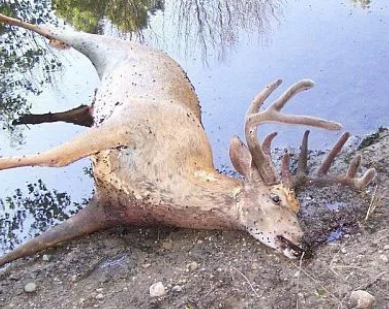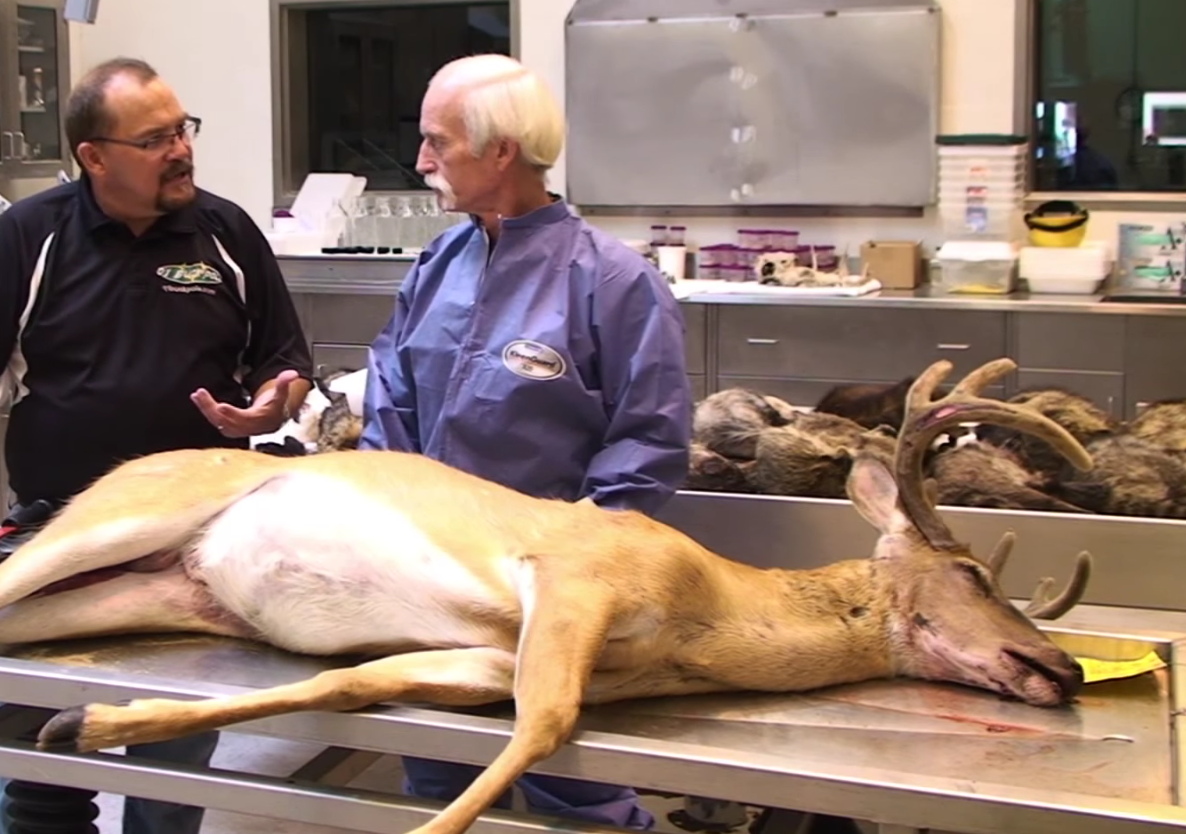Nearly 30,000 deer hunters will receive refunds on their licenses due to an outbreak of epizootic hemorrhagic disease (EHD).
This is the second straight year the North Dakota Game and Fish Department is offering thousands of refunds to hunters. The department says it has received nearly 1,000 reports of dead deer after EHD began circulating in late August.
The disease, transmitted by biting gnats or midges, seems to be impacting a larger portion of the state than usual, said Wildlife Chief Casey Anderson, according to U.S. News & World Report. The disease is not known to be dangerous to humans.
Reasons for the viral spread could be prolonged drought conditions in the state as well as record-breaking heat in October, creating conditions favorable to midges, according to Game and Fish Wildlife Veterinarian Charlie Bahnson and U.S. News & World Report.

The largest concentration of reported deaths is along the Missouri River, especially to the north and south of Bismarck and Mandan, the Bismarck Tribune reported.
The outbreak last year happened in the southwest and west central parts of the state. That year, Game and Fish offered license refunds to more than 9,000 whitetail license holders in 12 hunting units, but only around 400 sought refunds. This year, outbreaks are occurring throughout western and central North Dakota; the state is offering refunds to hunters with whitetail or “any” deer gun licenses in 22 units.
Bahnson said nearly 30,000 hunters are potentially affected. Game and Fish will continue to monitor the outbreak to see if more people will be eligible for refunds. Hunters and landowners are asked to report any dead deer and submit photos to the department through an online wildlife mortality reporting system.
EHD outbreaks end only after a hard freeze kills off the midges. According to the National Weather Service forecast, a hard freeze could happen in parts of western North Dakota yet this week.
This year’s deer gun season is Nov. 5 through Nov. 21 in North Dakota. The state made 72,200 licenses available this year, the highest number in a decade.


